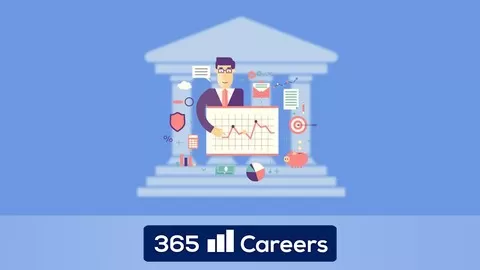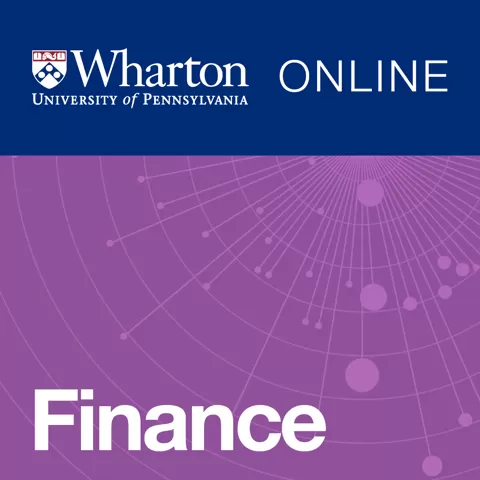Get a running start in the high-stakes world of financial investment! This first course is designed to help you become an informed investor by providing you with the essential concepts for long-term success in managing money.
You’ll start by learning the role of financial markets and financial assets in a well-functioning economy. From there, you’ll learn about the wide range of financial instruments available in major asset classes, their features and valuations. You’ll explore how financial markets actually operate in the real world, focusing on how and where securities are traded and how various market types differ from one another in practice. You will also learn the basics of algorithmic trading, dark pools, buying on margin and short selling.
By the end of the course, learners will be able to:
• List and distinguish the different financial instruments available to an investor
• Compare global financial markets
• Explain the features of equity, debt, and derivative instruments
• Define traditional and alternative asset classes
• Discuss different trading venues and mechanics of securities trading
• Discuss the current trends affecting today’s financial markets
This course is designed to be accessible for students of all knowledge levels and gives you the actionable foundation needed to manage money in a post-crisis world.
________________________________________
WEEK 1
Module 1: Introduction & Review of Elementary Finance Tools
This module introduces the Investment and Portfolio Management Specialization, which is made up of four courses. This module discusses how the first course, Global Financial Markets and Assets, is organized. It outlines the different stages of the investment management process, which guides the focus of the Specialization. It also reviews basic finance concepts and tools such as time value of money, computing returns, discounting and compounding.
Topics covered include:
• Familiarize with the organization of the class
• Meet the professor and your peers
• Explain the investment management process
• Review elementary concepts in finance
• Compute present value or future value of a single cash flow
• Compute present value of future value of a stream of cash flows
• Define an annuity or perpetuity
• Apply time value of money tools to solve basic mortgage, loan or retirement problems
________________________________________
WEEK 2
Module 2: Financial system & financial assets: fixed income securities
In this and the next two modules, we cover the key institutional features of financial markets and instruments. We ask the following questions: Why do financial markets exist? What role do they play? What are financial assets and how are they different than real assets? How does it all come together? Basically, this is where I hope you will get to see the big picture of the entire financial system and how it comes together.
Module 2 focuses on fixed income securities. We’ll get started with a review of basics of bond valuation. You will learn about short-term money market instruments, U.S. Treasury securities as well as corporate bonds. After module 2, you will be able to describe fixed income securities, be familiar with their institutional features, and identify their cash flows. Finally, you will learn how to value fixed income securities such as Treasury bills, zero-coupon or coupon-bonds and compute yields.
Topics covered include:
• Explain the roles of financial markets
• Distinguish between real and financial assets
• Define and explain money market instruments, zero-coupon and coupon- bonds and features
• Identify the cash flows associated with fixed-income securities
• Define and explain bond market features
• List the different types of Treasury securities and explain pricing and quoting conventions
• List and define other long-term debt instruments such as corporate bonds, mortgage-backed securities, sovereign debt
• Find the value of a zero-coupon or coupon-bonds
________________________________________
WEEK 3
Module 3: Financial system & financial assets: equity securities and derivatives
In Module 3, we continue our overview of financial markets and instruments. We next focus on two other major asset classes: equity securities and derivative instruments. You will learn about how equity differs from fixed income securities, the cash flows associated with stock and preferred stock and how to find the value of a share. You will also learn about option strategies. After completing module 3, you will be able to describe all major asset classes, including derivative instruments such as options, forwards and futures. You will be able to explain how these differ from each other and their payoffs.
Topics covered include:
• Distinguish between equities and fixed income securities
• Define and explain the features of equity securities
• Identify the cash flows associated with equity securities
• Explain dividend discount model
• Find the value of a share of common stock or preferred stock
• Define and list different types of derivative securities
• Explain option payoffs
• Distinguish between a forward and futures contract
• Explain forward and futures payoffs
• Identify traditional and alternative asset classes
________________________________________
WEEK 4
Module 4: Organization of financial markets and securities trading
In this module, we discuss how financial markets actually work. We will talk about different trading venues and the mechanics of securities trading. I will emphasize a lot of terminology and the latest trends in securities trading to familiarize you with the institutional workings of financial markets. After this module, you will be able to compare different trading venues, trading mechanisms, and be able to explain different types of orders, including transactions like margin buying and short- selling; you will be familiar with the language and terminology you need in order to become an informed practitioner of investments.
Topics covered include
• Explain the roles of corporations, households, government, and financial intermediaries in the financial system
• Explain price discovery process
• Define different type of orders
• Distinguish between dealer vs. auction markets; different trading platforms
• Explain margin buying and short-selling transactions
• Understand the current trading environment such as algorithmic or high frequency trading, dark pools etc.






